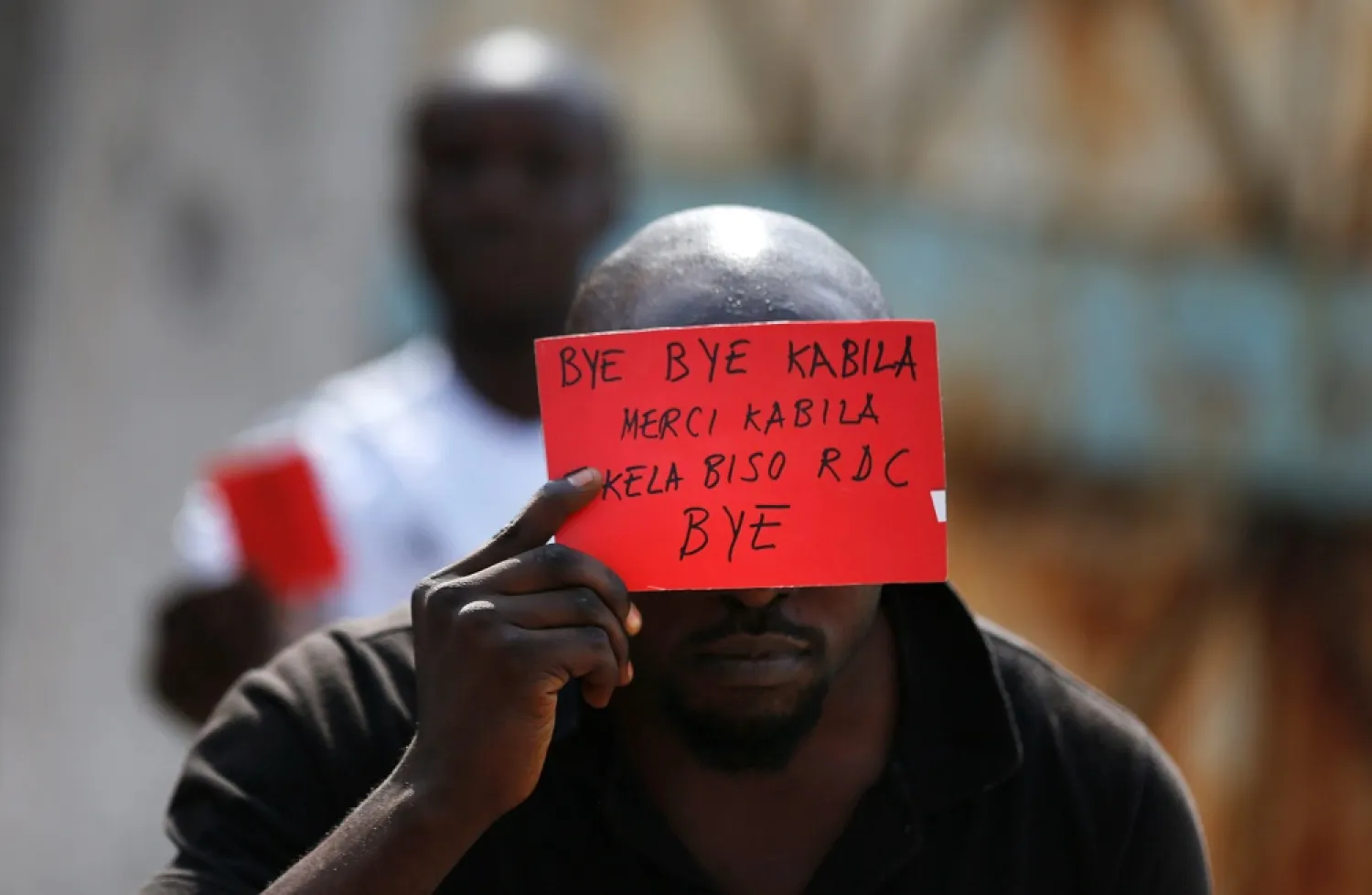Two demonstrators were killed on Sunday by security forces during rallies against Congolese President Joseph Kabila's refusal to step down from office, Human Rights Watch said.
The two men were killed outside St. Alphonse church in Kinshasa's Matete district, the advocacy group's Central Africa director, Ida Sawyer, told Reuters.
Police and soldiers had set up earlier Sunday checkpoints across the capital and fired teargas at opposition supporters who had gathered outside churches to protest against Kabila.
Authorities ordered internet and SMS services to be cut following calls by Catholic activists for protest marches after Sunday mass. The activists are demanding that Kabila commit to not changing the constitution to stand for a third term and to release political prisoners.
The police have banned demonstrations and said that all gatherings of more than five people will be dispersed. Across Kinshasa, police and soldiers searched vehicles and checked passengers’ identifications.
Some 40 percent of Congo’s population is Roman Catholic and the Church enjoys rare credibility with the public, even though its leadership has not formally backed the protests.
At the Notre Dame du Congo cathedral in Kinshasa’s Lingwala district, where opposition leader Felix Tshisekedi was attending mass, dozens of police and soldiers blocked the path of more than 100 opposition supporters as they prepared to try to march.
Tshisekedi, however, who had backed the activists’ call to march, left the church in a vehicle, spurring angry shouts from the crowd, which said he was abandoning them.
At the Paroisse Saint Michel in Bandalungwa district, security forces fired teargas into the church, creating panic, opposition leader Vital Kamerhe, who was present at the mass, told Reuters.
“All of the neighboring community came out (to protest) and I think that this shows the will of the people and marks the beginning of the end of the dictatorship,” Kamerhe said.
At another church in the working class district of Barumbu, a few dozen police officers used teargas and stun grenades against some 300 churchgoers, who waved bibles and sang religious songs as they tried to march, a Reuters witness said.
A police spokesman could not be immediately reached for comment.
Opposition appeals for protests this year have been easily suppressed by security forces but the Catholic activists’ appeal has managed to unite nearly all of Congo’s fractious opposition.
Kabila has been in power since 2001 when he succeeded his assassinated father Laurent Kabila.
He refused to step down at the end of his second and final term in December 2016.
That refusal led to protests and a bloody crackdown. Demonstrations have been banned or else widely repressed since September 2016 but several have nonetheless gone ahead since with many ending in bloodshed.
Elections were due to take place by the end of this year under a church-mediated deal aimed at avoiding more violence in a vast, mineral-rich country which has never had a peaceful transition of power since independence from Belgium in 1960.
After multiple postponements -- officially due to violence in the Kasai region -- the delayed poll is now scheduled for December 23 next year.
Clinging on to power, Kabila is banned by the constitution from running for a third term, but the deal allows him to stay on until the next poll is held.









